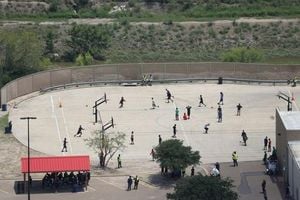A fire incident on the JR Kobe Line on May 5 has caused significant disruptions to train services across multiple lines, leading to cancellations and delays for thousands of commuters.
According to JR West Japan, the fire broke out at approximately 12:40 PM between Amagasaki and Tachibana stations. Quick action by train crew members, who noticed smoke rising from the weeds on the tracks, led to the initial response and subsequent report to the Osaka control center.
Local residents first alerted the authorities, reporting the flames and prompting emergency services to be dispatched. Fire crews were able to respond to the scene, but the initial disruption to train services began immediately. The JR Kobe Line, along with the JR Tozai Line and the JR Takarazuka Line, temporarily suspended operations as firefighters and train personnel worked to assess the situation.
JR West confirmed later on the same day at around 2:00 PM, all services had resumed. The incident resulted in the suspension of 51 trains and left 68 additional trains delayed, causing waits of up to 76 minutes. Approximately 41,000 passengers were affected, experiencing significant disruptions during their commutes.
The JR West team stated, "The fire was mostly extinguished by the crew," demonstrating the quick thinking and training of the staff involved. Fortunately, no injuries were reported, with safety protocols reportedly followed throughout the emergency response.
The fire's impact highlights the challenges faced by railway networks when unexpected accidents occur. JR West is known for its punctuality and reliable service, but incidents like this remind passengers of the vulnerabilities within even the most well-managed systems.
Details surrounding the cause of the fire indicated it was related to burning weeds along the railway tracks, which some residents had previously flagged as a potential fire hazard. With the increase of train traffic and the warm weather, the risk of similar incidents continues to be a concern for rail authorities and local governments.
The event progresses beyond just the immediate fire, reflecting on broader issues of track maintenance, safety, and timely responses to similar hazards. Such reflections invoke discussions on preventive measures and the role of community involvement and vigilance when it concerns public safety.
Following the incident, JR West plans to review safety procedures to prevent such occurrences, ensuring the safety and comfort of passengers remains their top priority. While passengers can now use the Kobe line again, the disruptions caused by the incident are likely to linger as discussions about railway safety continue.
With extensive operations across the region, JR West is committed to engaging with local communities as they seek to improve infrastructure safety. Officials encouraged the public to remain alert and report any suspicious activity around train tracks, aiding efforts to create safer transit environments.



